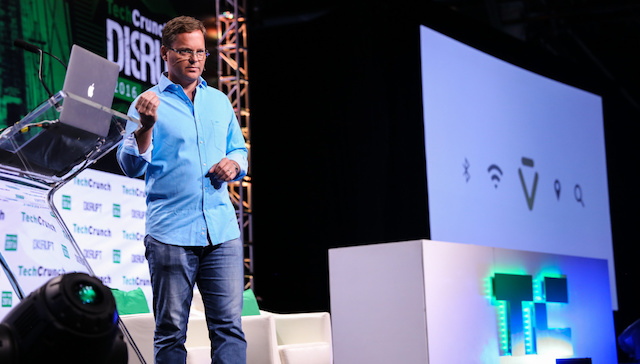The Daily Crunch 10/06/16 All the intelligences will soon be artificial, unless you're an Android OEM that isn't Google. All that and more in The Daily Crunch for October 6, 2016. And if you're looking for a new job, LinkedIn won't tell anyone... except the people you'd want to know. 1. The AI wars have begun In the future, companies will probably acquire each other with minimal or no human involvement, determining optimal unions based on algorithmic predictions and insights on successful mergers built from neural networks. But in the near term, Samsung's acquisition of Viv, the new AI startup by the founders of Siri, is still a very human affair, and one designed to help it compete with Google, Microsoft and Apple's huge investments into AI product development. Viv looks very capable, so let's hope their smarts don't get dulled in the giant Samsung corporate machine. 
2. Udacity is making good on open-source self-driving Sebastian Thrun has already been hailed as the "godfather of self-driving" because of his work starting Google's self-driving vehicle program, but he might be doing more to earn that name at his online education company Udacity. The company now offers a course in self-driving engineering, and it also just open-sourced an additional 183GB of driving data to help anyone teach their own self-driving computer, adding to 40GB released previously and bringing the total to an impressive 223GB all-told. 3. Google's Assistant features are exclusive to their Pixel hardware Data is key to building effective AI, as evidenced by Udacity's move with cars above, and yet Google is actually limiting the pool of data available to its new Assistant by keeping the feature exclusive to its Pixel smartphones, at least for now. The move is a curious one for Google, which typically wants its services wherever they can live, including on iOS devices, but it probably reflects a desire by the company to own more of the hardware experience. This is the strongest indication yet that Android OEMs need to watch out, because Google really does want to make its own hardware a premium, competitive experience. 4. The Theranos ending Theranos says it's refocusing on the miniLab, a product that isn't particularly innovative according to most, and is shutting down all its testing facilities and laying off a slew of employees. Reading between the lines this looks like the beginning of the end, though – at least, the end of its sky-high valuations, but I find it hard to believe they can build anything meaningful on what's left of the company's shaky foundations. 5. Making it to Mars Space exploration literally requires that you light a fire under those ships, but figuratively it needs that, too; the space race led to the moon landing, and a new one between Boeing and SpaceX could get us to Mars. Musk seems to want to get us there via sheer force of will alone, but it shouldn't hurt for him to have some healthy competition. And for Boeing, maybe this will help slap them awake from the succor of deep-pocketed government funding. 6. This bot's on the ball BB-8 kind of exists in real life, but it's still more prop than proper robotics. This new robot from Carnegie Mellon's celebrated robotics department has no moving parts, and yet moves around quite easily. How? Devin explains it much better than I could here. Short answer is "science." 7. LinkedIn's new feature will broadcast your job antsiness quietly Want to leave your job? Want no one to know? Check out this new feature from LinkedIn which is going to allow premium recruitment members see that you're interesting in leaving while making that invisible to others on the platform. In the modern workplace people should probably just assume everyone is looking for something better and treat that accordingly, but this is still a bonus for the overly cautious. |